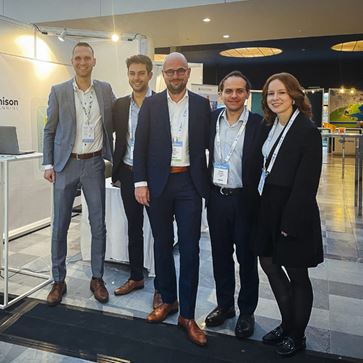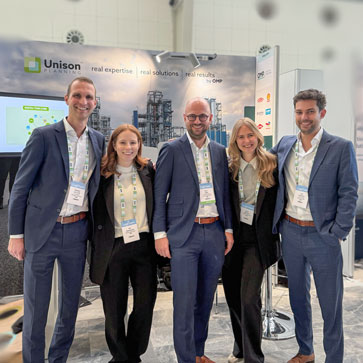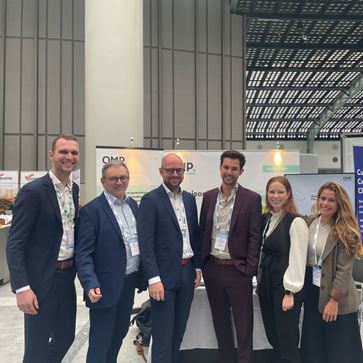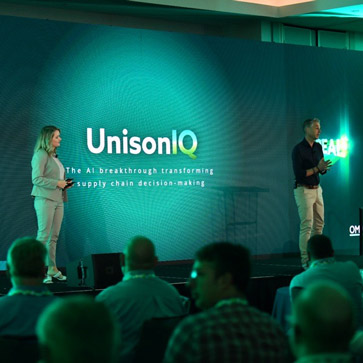
The 2024 OMP Chemical Council: Resilience is the agility you plan for
Robbert De Looff - July 25, 2024
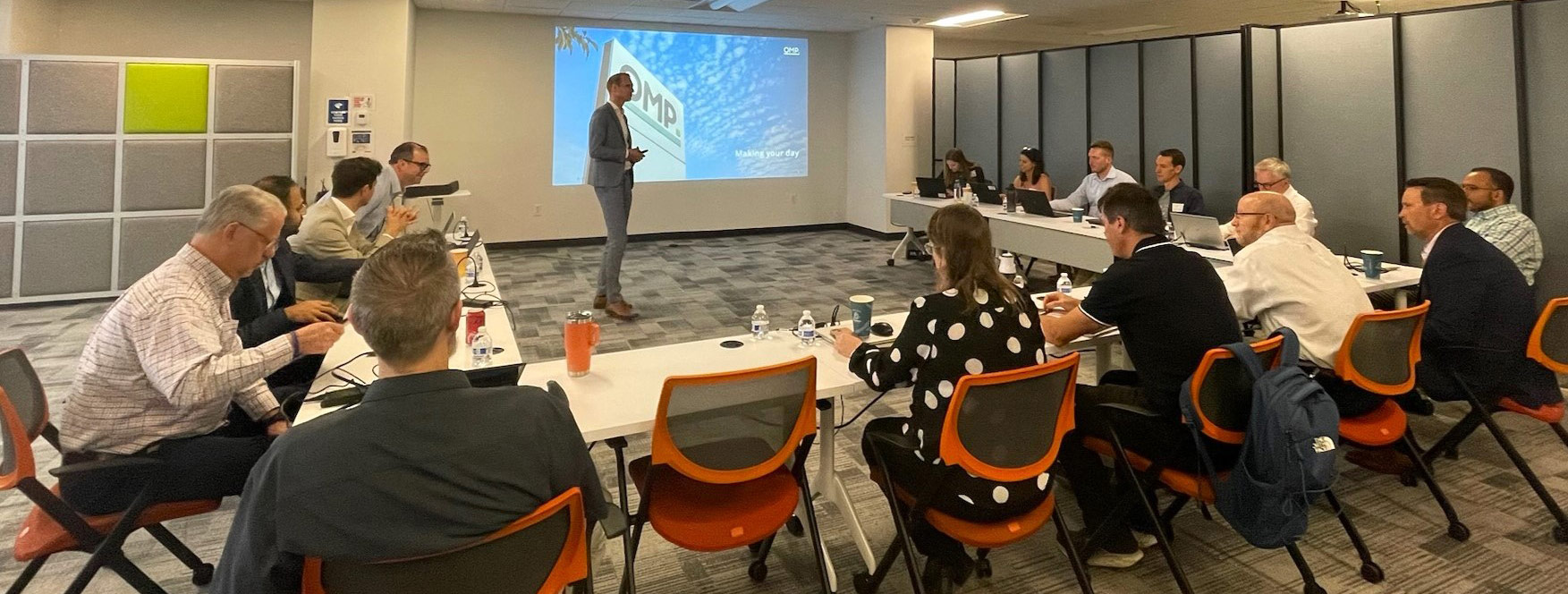
Each chemical company’s approach to tackling supply chain challenges continues to evolve. To ensure we support our customers in the best way possible, we organize industry councils: annual, strategy-focused, in-person meetings. These encounters facilitate knowledge-sharing and allow attendees to exchange best practices to meet current and future industry challenges.
At our recent 2024 OMP Chemical Council, held in early June in Atlanta, key discussion topics included supply chain risks, how to ensure circularity, enhancing digital transformation, and establishing the S&OE process. Having organized Chemical Councils for over five years (online and offline), I found the energy in the room unparalleled—a deep focus and an eagerness to listen, discuss, and learn. Plus, the networking, both during and after the presentations, was exceptional.
Here are the main takeaways from this Chemical Council I had the honor and opportunity to host.
Discussion-provoking observations
Blog post
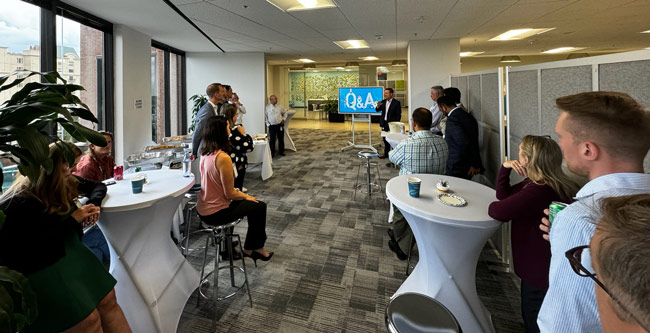
One topic that inspired all participants to contribute was the need to speed up the digitalization of the supply chain. This digitalization is primarily driven by external factors such as geopolitical conflicts and ongoing climate changes, which make the market unpredictable and increase demand volatility. In addition, new legislative initiatives require significant rethinking of supply chain practices.
All these external factors influence internal process changes, such as setting new company policies, speeding up innovations, implementing sustainability objectives, and implementing the lessons learned from the Covid-19 pandemic disruptions.
Blog post
Supply chain teams are called upon to implement these new processes and translate them into decision-making strategies. These strategies often need new and more innovative ways to deal with the new reality—more scenario planning, increased agility, and additional clarity for planners to ensure their decisions align with corporate goals.
Customer presentations: AkzoNobel, Eastman, Shell, and Valvoline
After essential introductions and an overview of the upcoming OMP Community activities and events, we dived into the customers’ presentations.
Eastman’s talk on bringing circularity to practice was a great mixture of proven tips and guidelines combined with an open discussion. Since Eastman manufactures and markets chemicals, fibers, and plastics, its approach to sustainability has become an essential part of its business strategy, not just a business goal. Learning how they modeled the sustainability parameters to allow for transparency in their credit was incredibly beneficial.
Shell and AkzoNobel shared their business approach to establishing successful processes of digital transformation (Shell) and an S&OE (AkzoNobel). Beyond sharing their data and lessons learned, I was particularly impressed by the internal processes each team developed. To keep demand and supply synchronized and shorten the S&OE process, AkzoNobel set up and followed its own set of principles, including managing by exceptions, presenting data for decision-making, and scheduling regular follow-ups on agreed actions. To enhance the value of digital transformation, Shell introduced its own Value Tracker—a dashboard for entering use cases and KPIs, with outcomes based on contributions to cash/delivery and margins.
Perhaps the most discussion-filled presentation was “How to make your supply chain more resilient?” given by the representatives of Valvoline. This is partly because the conversation quickly focused on efficiently implementing of AI and ML solutions to boost supply chain resilience. Tip: including a Data Scientist in the process helps quickly reach actionable results. And partially because each organization shared the benefits of OMP’s quick scenario-planning capabilities. A common challenge for all teams is communicating valuable, probable scenarios to departments on time.
Thankfully…
Keynote speaker: Andrew Byer, Procter & Gamble
Blog post
Leading and managing supply chain teams for better results was one of the subjects covered by keynote speaker Andrew Byer, ex-Supply Chain Executive at Procter & Gamble, who gave two presentations at the council.
When talking about optimizing the value from your digital planning transformation, Andrew delved into the work process and culture needed to shape a team ready to meet the chemical industry’s supply chain challenges. His pro tips included work stories about the danger of rewarding the firefighters (team members focused more on putting out fires rather than establishing a fire-proof supply chain strategy) and guidelines for regular alignments on objectives and KPIs across the organization.
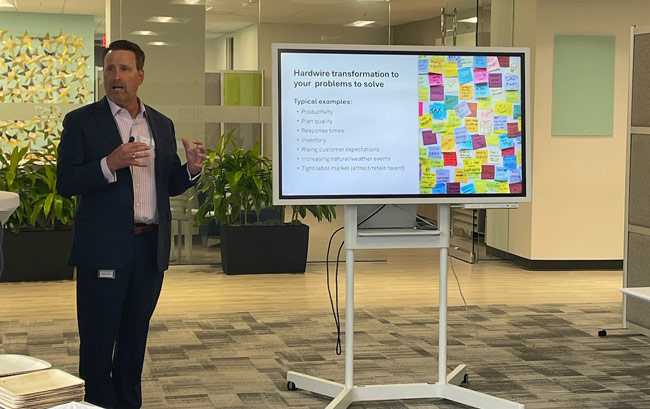
Blog post
While the customers’ presentations and discussions focused on advancing current approaches and looking to the future, I was struck by how, during Andrew's keynote and second presentation, "Winning with the future of the workforce," he proposed a different mindset. He emphasized building a strategic vision of a company’s future, which helps to determine the value of the resources and approaches implemented in the present moment.
What’s next? Resilience is the agility you plan for.
Blog post
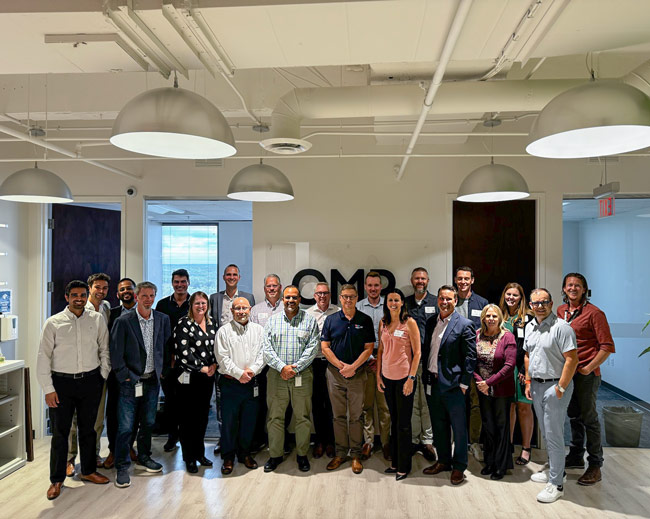
At OMP, we build strategies tailored to our customers' needs and follow up on their feedback. After the 2023 Chemical Council, we not only deployed and improved Unison Planning™ for Chemicals, but we also extended our OMP Knowledge Hub with clear training paths and options to receive certifications. This way, supply chain planners can gain new qualifications, and managers can have a clear overview of their team members’ skill sets, talents, and interests—all while engaging with new Unison Planning capacities and building a supply chain Center of Excellence.
After the 2024 Council, we are looking ahead and further optimizing our solution. OMP believes that winning companies will embrace a central set of connected planning services that will constantly make all critical supply chain planning decisions fully autonomously. These decisions will be synced with a company’s corporate strategy, balancing economic, environmental, social, and other objectives within the broader supply chain network. We are already building and implementing solutions to enable this.
Blog post
Forward-thinking is part of OMP’s DNA. As Paul Delbar, Senior Marketing Manager at OMP, said when discussing building a resilient supply chain, “Resilience is the agility you plan for.”
Ultimately, we can only achieve this agility together—as supply chain planning solution users and builders. Beyond individual profit, we are navigating the same field of supply chain risks in the chemical industry. Councils like this one prove that this approach is mutually beneficial and that, in many ways, the Center of Supply Chain Excellence is already here.
Ready to join us? Let's talk.

Robbert De Looff
Excellence Manager Chemicals at OMP BE
Biography
Robbert is dedicated to maximizing the value of OMP's chemical solution for customers, striving for optimal efficiency every step of the way. Driven by a passion for sustainability and a fascination with optimization and value realization, he's always on the lookout for groundbreaking industry solutions to tackles challenges head-on.